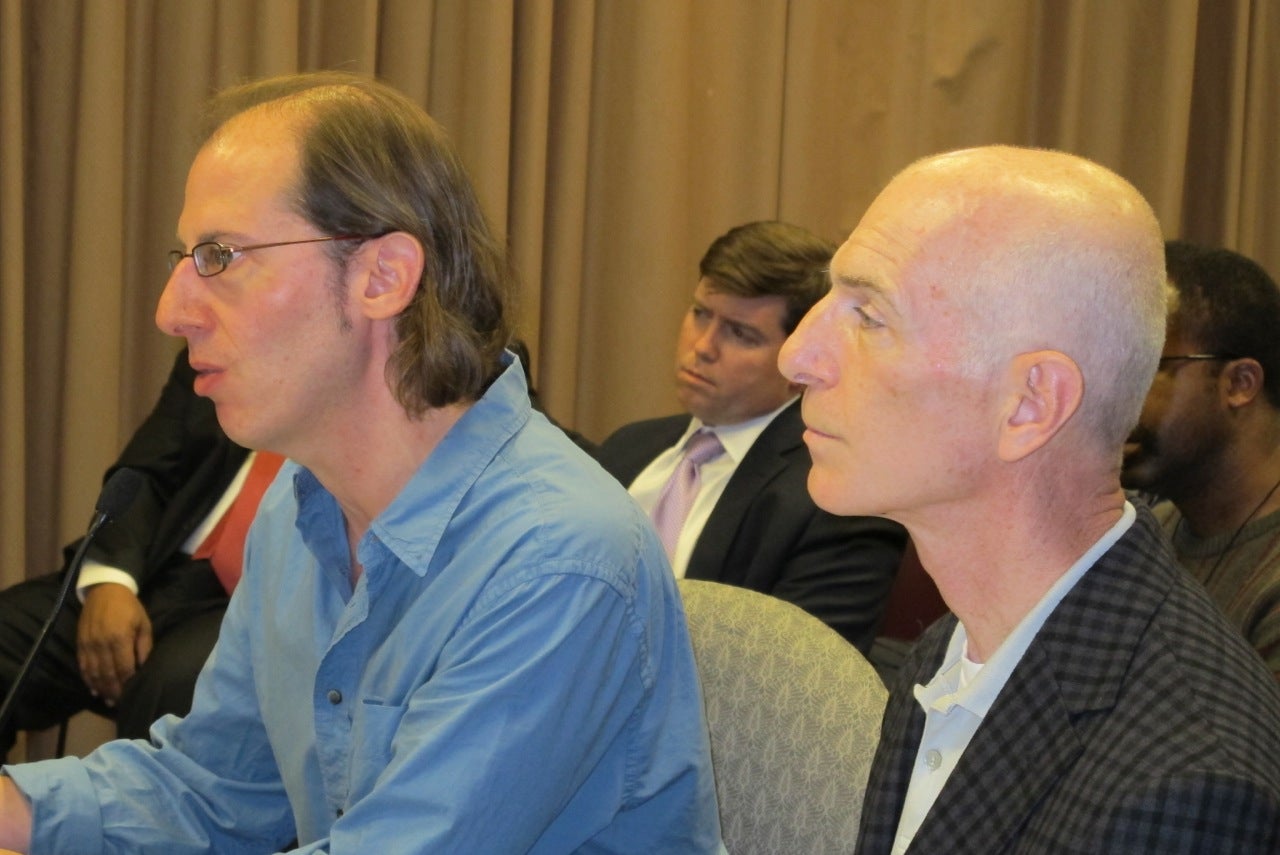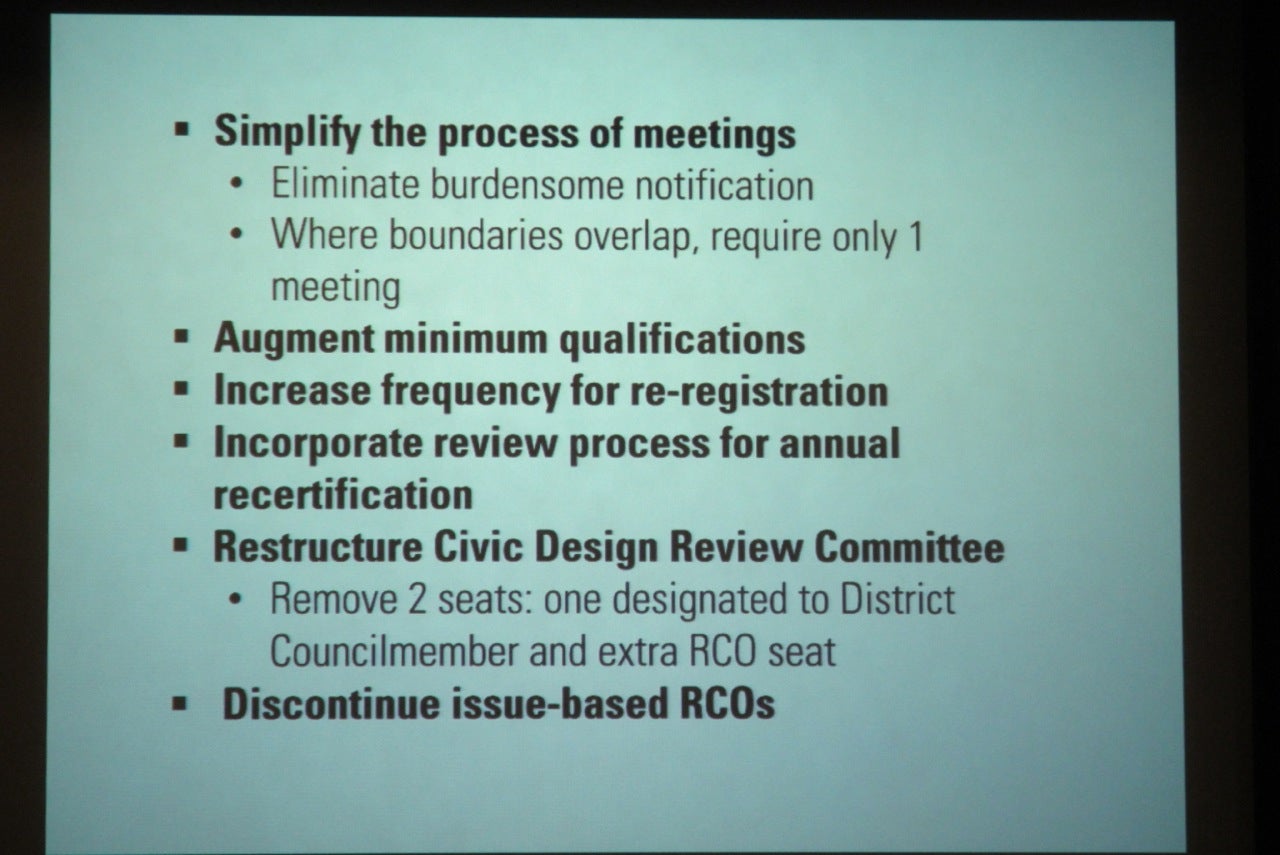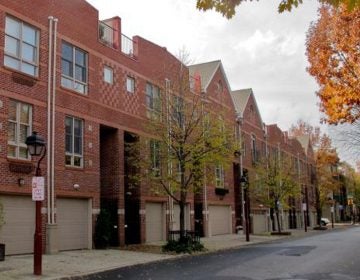Battle looming over Registered Community Organizations

The Philadelphia City Planning Commission recommended approval on Tuesday of a bill that its staff helped Councilman Bobby Henon draft and that would largely revert the zoning code’s rules governing Registered Community Organizations to the way they were written when the new code was adopted by Council nearly two years ago.
Councilwoman Jannie Blackwell changed the rules about six months after the code was enacted, with a bill that passed Council by a vote of 15-2. Mayor Nutter vetoed the bill, and Council then overrode the veto by a vote of 13-3.
Henon’s new bill, which was the subject of earlier coverage, makes a handful of changes to the current rules governing how community groups participate in the development process.
It would require overlapping RCOs with interest in a given project to convene a single meeting with the developer, reduce the maximum size of an RCO to 3 ½ square miles from 7 square miles, and remove a provision requiring neighborhood groups to notify individual property owners when developments are proposed, leaving that responsibility to the zoning applicant. The bill would also allow only one RCO representative on the Civic Design Review Committee, rather than the two currently allowed under Blackwell’s amendments.
Groups would also be required to conduct regularly scheduled meetings, open to the public, and have leadership chosen by members of the group. One major change to both the current regulations and the rules as they were written when the code was adopted is the elimination of issue-based Registered Community Organizations, groups whose interest in development is not neighborhood-specific. Eleanor Sharpe, a Commission staff member who presented the bill, said that the goal of many of the provisions in the bill is to assure that RCOs are “neighborhood-sized entities that deal with planning and zoning.”
Matt Ruben, chair of the Central Delaware Advocacy Group (CDAG), testified in favor of keeping issue-based groups in the code. Ruben is also president of Northern Liberties Neighborhood Association, and his reasoning in defending the importance of issue-based groups is that those groups have different status than local groups, and should continue to have different status. Issue-based groups simply receive notification, whereas local groups meet with developers and participate in Civic Design Review. Ruben said that if issue-based groups were eliminated, then some which are small enough to fit the requirements of a local group, such as CDAG, could register as such and be seen as having “parity” with traditional neighborhood groups. Ruben said groups like CDAG should be given notification of development projects, but not be lumped in with neighborhood groups.
The Planning Commission eventually voted to recommend the bill, but without the provision eliminating issue-based RCOs.
It bears emphasis that the only special benefits granted to Registered Community Organizations over other groups or individuals are: notification of proposals in their area, the right and responsibility to meet with the developer, and the chance to participate in Civic Design Review. Any non-registered group or individual may still testify before the City Planning Commission, the Civic Design Review Committee, City Council, and the Zoning Board of Adjustment. Nothing in the zoning code says that RCOs’ comments are to be given any more weight than anyone else’s.
Councilwoman Blackwell changed the original rules because, encouraged by two members of Concerned Citizens of Point Breeze, she felt they made it too difficult to become an RCO and participate in the zoning process. The Planning Commission and Councilman Henon are seeking to change the rules back partly in response to complaints over the past year and during the writing of the one-year zoning code report that the amended process puts an expensive burden on neighborhood groups, and causes confusion between RCOs and developers trying to coordinate meetings.
Presenting the bill on Tuesday, Eleanor Sharpe said that Council members are already working on amendments. When Henon introduced the bill two weeks ago, Councilwoman Blackwell described it as an attempt to undermine the authority of district Council members. The current process allows District Council members to appoint a representative to the Civic Design Review Committee; the bill proposed by Henon would not.
Last week, a man stood outside City Council chambers handing out three-page fliers to everyone who exited. The man said he did not work for the Councilwoman, but the flier was titled, “Comparison of City Planning Commission revised R.C.O. Law sponsored by City Councilman Bobby Henon versus City Councilwoman Jannie L. Blackwell’s current R.C.O. Law.”
It laid out eight substantive differences between the current process and the proposed process in factual terms. But the flier’s summary suggests there may not be an easy compromise in the works: “This bill is designed to go around the citizens by terminating the legal rights of the elected officials.”

WHYY is your source for fact-based, in-depth journalism and information. As a nonprofit organization, we rely on financial support from readers like you. Please give today.






